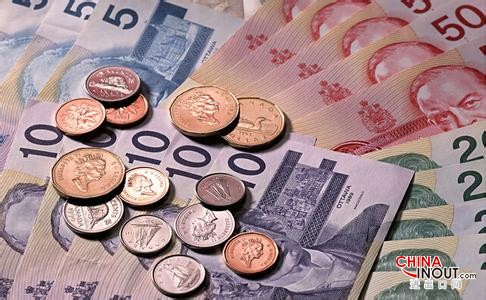
遭受衰退加剧、大宗商品价格下跌重创,还面对信贷危机风险的俄罗斯,至少可以指望从卢布贬值获得一个优势:对华农业贸易大幅飙升。
从巧克力到葵花籽油和动物饲料,在截止7月底的3个月里,俄罗斯食品出口(尤其是从毗邻其东方邻国的地区)出现指数级增长,成为卢布贬值带来切实利益的少数例子之一。尽管在今年头6个月期间,俄罗斯对华出口总体下降23.5%,但农业出口额上升33%,出口量增长近80%。
莫斯科农业监管机构——俄罗斯动植物防疫检疫局(Rosselkhoznadzor)的高级官员阿列克谢?阿莱克延科(Alexei Alexeenko)最近表示:“中国过去总是想把自己的产品出口至我们的国家,但现在中国突然对俄罗斯农产品产生了兴趣。就农产品而言,俄罗斯和中国有许多新的重大供应项目,涉及从猪肉到蔬菜的各种农产品。”
在此过程中,在过去一年里相对于美元贬值45%的卢布,帮助巩固了双边经贸关系——从总体上说,俄中经贸关系在实现两国领导人的宏伟预期方面进展缓慢。
欧洲传统上是俄罗斯最重要的贸易和投资合作伙伴。面对乌克兰危机带来的政治后果,莫斯科承诺与亚洲(尤其是中国)加强经贸往来。俄罗斯试图用中国贷款取代被制裁掐断的西方资金,并签署了巨额能源协议。
但中国的银行对俄罗斯市场的业务态度谨慎,双边贸易下降,尽管降幅小于俄罗斯整体对外贸易的下降幅度。
中俄经贸合作的主体一向是小本经营的中国生意人,现在他们当中有许多人回国,因为他们的贸易业务的微薄利润随着卢布贬值而消失。
上月关了自己在莫斯科的服装、鞋和饰品店的龚宇(音译)表示:“我们找不到地方可以削减成本。在这里销售中国消费品怎么也赚不到钱了。”
然而,新的投资者正在出现。自去年年末以来,越来越多的中国代表团访问俄罗斯,寻找可供出售或出租的农地。
来自河南省的一位退休官员今年夏季考察了莫斯科地区、北高加索地区的达吉斯坦共和国和乌拉尔南部地区物色农地。他表示:“现在是来这里的好时机,价格低,当地人也更愿意租给我们。”
在最靠近蒙古、中国、朝鲜和日本的俄罗斯远东地区,这种趋势甚至更为明显,中国农业投资者早就在这里立足。国有和私营农场——大多来自中国东北的黑龙江和吉林——一直在滨海边区(Primorye)、犹太自治州(Jewish Autonomous Region)、阿穆尔(Amur)和哈巴罗夫斯克(Khabarovsk)等俄罗斯边境地区租赁土地。
全家在犹太人自治区经营农场的年轻人廖红(音译)表示:“我们过去为俄罗斯市场生产蔬菜,但现在我们只保留一些蔬菜自用,其余蔬菜运回国内销售。”
较大的投资者也在加入这种潮流。
中国主权财富基金——中国投资公司(CIC)的副总经理谢平表示:“农业、水产养殖业……我们将认真研究在边境地区推进这些行业。”中投称,过去7年里在俄罗斯投资了大约70亿美元。
俄罗斯公司也受益于更为有利的汇率。国有的俄罗斯农业集团(RusAgro)去年开始向中国出口葵花籽油。与此同时,远东联邦管区(Far Eastern federal district)的俄罗斯巧克力和糖果制造商报告称,在截止今年8月的季度里,对华销售增长了11倍。
但中国对俄罗斯食品不断增长的需求并未受到无条件的欢迎。
许多俄罗斯当地官员指责中国农业投资者过度开发土地,对俄罗斯资源造成长期破坏。
犹太自治州州长亚历山大?莱温塔尔(Alexander Levintal)表示:“中国人全都种植大豆。大豆是很好的农产品,它们很容易出口中国,但专家说,我们必须采用轮作方式。”
最近在符拉迪沃斯托克(Vladivostok,即海参崴——译者注)举行的一场会议上,俄方试图说服来自亚洲邻国的潜在投资者从投资于原材料转向投资于附加值更高的产品。
莱温塔尔表示:“我希望,他们在俄罗斯将不只种植大豆,而且还建造加工厂。”
俄罗斯远东地区(只有500万人口)如何在不损害自身利益的情况下,与逾1亿人口的中国东北地区打交道。莫斯科想要确保东西伯利亚基本上未被开发的广袤土地不会成为中国的附属资源,并将此视为俄罗斯的国家安全问题。
俄罗斯国家杜马(即联邦下议院)副议长伊戈尔列别捷夫(Igor Lebedev)表示:“我们不能将那里太多的土地交到中国人的手里。长期而言,那将威胁到我们的主权。”(中国进出口网)
Battered by a deepening recession, lower commodity prices and the prospect of a credit crunch, Russia can count at least one advantage of having a devalued national currency: soaring agricultural trade with China.
Russian exports of foodstuffs, ranging from chocolate to sunflower oil and animal fodder, increased exponentially over the three months to the end of July, especially from regions close to Russia’s eastern neighbour, in a rare example of tangible benefits of the weaker rouble. While overall Russian exports to China dropped 23.5 per cent in the first six months of this year, agricultural exports are up 33 per cent in value terms and almost 80 per cent in volume.
“China always wanted to export its own products to our country, but now China is suddenly interested in Russian agricultural products,” Alexei Alexeenko, a senior official at Rosselkhoznadzor, Moscow’s agricultural watchdog, said last week. “With regard to agricultural products, Russia and China have many new very significant supply projects. They range from pork to vegetables.”
In the process a weaker rouble, which has shed 45 per cent of its value to the US dollar over the past year, has helped cement a bilateral economic relationship that has otherwise been slow to meet the ambitious expectations set by leaders in Moscow and Beijing.
Amid its political fallout over Ukraine with Europe, traditionally Russia’s most important trade and investment partner, Moscow has pledged to step up economic ties with Asia, and particularly with China. It has been trying to replac western funding — blocked by sanctions — with Chinese loans, and signed big-ticket energy deals.
But Chinese banks have approached the Russian market with caution, and trade between the two countries has shrunk, albeit to a lesser extent than Russia’s overall foreign trade.
Many of the small-time Chinese entrepreneurs who long formed the bulk of economic co-operation with Russia have returned home as the thin margins of their trading businesses evaporated with the dro of the rouble.
“There is nowher else wher we can cut cost. There is simply no longer a profit to be made from selling Chinese consumer goods here,” says Gong Yu, who closed her business selling clothing, shoes and accessories in Moscow last month.
However, new investors are appearing. Since the end of last year, a growing number of Chinese delegations have been visiting Russia in search of agricultural land for sale or lease.
“This is a good time to come here, prices are low and locals are more willing to rent to us,” said a retired official from the central Chinese province of Henan who toured the Moscow region, the north Caucasus republic of Dagestan and the southern Urals this summer to look at agricultural land.
In the Far East, the Russian region closest to Mongolia, China, North Korea and Japan, this trend has been even more pronounced as Chinese agricultural investors have long been present there. State-owned and private farms, mostly from the north-eastern Chinese provinces of Heilongjiang and Jilin, have been leasing additional land in the Russian border regions of Primorye, the Jewish Autonomous Region, Amur and Khabarovsk.
“We used to produce for the Russian market, but now we only keep some of our vegetables for our own consumption and sell the rest back to China,” says Liao Hong, a young man whose family runs a farm in the Jewish Autonomous Region.
Larger investors are also jumping on the bandwagon.
“Agriculture, aquaculture?.?.?.?we’ll take a good look at these in the regions close to the border going forward,” said Xie Ping, executive vice-president of China Investment Corporation, the sovereign wealth fund, which claims to have invested about $7bn in Russia over the past seven years.
Russian companies are benefiting from the more advantageous exchange rate as well. State-owned Rusagro started exporting sunflower oil to China last year. Russian chocolate and confectionery makers in the Far Eastern federal district, meanwhile, have reported an eleven-fold increase in sales to China over the quarter to August.
But China’s growing hunger for Russian foodstuffs does not meet with an unconditional welcome.
Many local officials accuse Chinese agricultural investors of over-exploiting the land and doing long-term damage to Russia’s resources.
“The Chinese all plant soybeans. Soybeans are a good product, and they export well to China, but experts say we have to do crop rotation,” said Alexander Levintal, governor of the Jewish Autonomous Region.
At a recent conference in Vladivostok, the government tried to convince potential investors from neighbouring Asian countries to transition from investing in raw commodities to more value-added goods as well.
Mr Levintal said: “I hope that they will not only plant soybeans but also build processing facilities in Russia.”
More fundamentally, there are questions over how Russia’s thinly populated Far East, with a population of just 5m, interacts next to more than 100m people in north-east China without compromising its interests. Moscow considers it a matter of national security to make sure its vast expanses of largely empty land in eastern Siberia will not become a resources appendix for China. 更为根本的是,人们质疑,人口稀少的
“We must not put too much of our land out there in the hands of the Chinese,” says Igor Lebedev, a deputy speaker of the state Duma, Russia’s parliament. “In the long term, that will become a risk to our sovereignty.”











